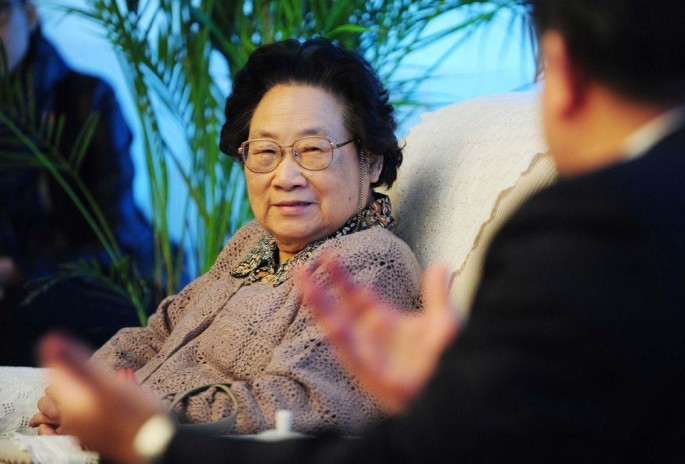Tu Youyou was visited by Shen Yueyue and Song Xiuyan of the All-China Women's Federation (ACWF) on Oct. 10 to congratulate her on winning the 2015 Nobel Prize in Physiology or Medicine.
Shen is the president of the ACWF, while Song is the vice president and first member of the Secretariat of the ACWF. The two congratulated Tu on her achievement on behalf of the organization.
Tu, a Chinese pharmacologist, is the first Chinese woman to win a Nobel Prize for science. She was awarded for developing artemisinin, a drug that, according to the Nobel Assembly at the Karolinska Institutet at Stockholm, "has significantly reduced the mortality rates among patients suffering from malaria."
Tu won half of the prize, with the other half split between William C. Campbell of Ireland and Satoshi Omura of Japan for their research into infectious roundworm parasites.
Shen, who is the vice chairperson of the Standing Committee of the National People's Congress (NPC), praised Tu, and told her, "On you, we have seen science workers' firm belief, perseverance, character of dedication, scientific attitude, and realistic manner."
"Chinese women will learn from your characteristics of patriotism, selfless devotion, indifference to fame and money, and perseverance, as well as your scientific spirit of scaling the new heights and making bold innovations, to contribute more to the Chinese dream of the rejuvenation of the Chinese nation," added Shen.
Shen then expressed how the ACWF would be there for Tu and her family if ever she needed assistance.
Tu said that the Nobel Prize was the product of her whole team's effort and brought honor to all Chinese people. She also expressed her gratitude to the ACWF.
Tu also talked about how she hoped the government would invest and incentivize similar achievements in young people, so there may be better conditions for scientific research and development.



























